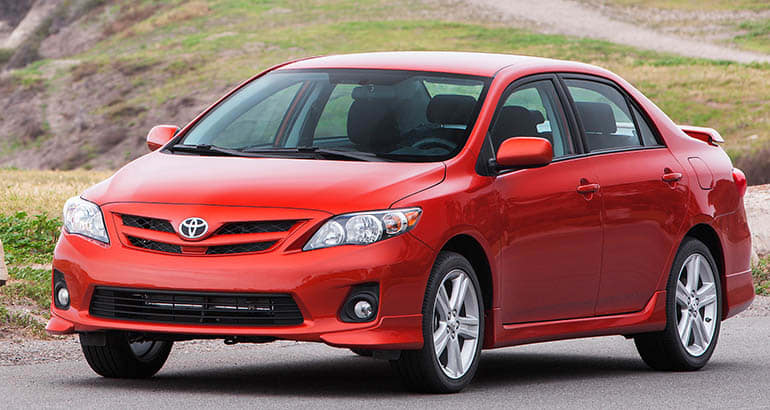Toyota, Japan – Feb. 27, 2019 – Toyota Motor Engineering & Manufacturing (Toyota) is recalling certain vehicles equipped with Takata air bags containing inflators that can become hazardous over time. Affected vehicles cover units in a range manufactured between 2010 and 2017, from areas determined to be most at risk for propellant degradation. This includes most Southern, Mideastern and Midwestern states (classed as Zones A, B, and C) as well as U.S. territories including Puerto Rico, American Samoa, Guam, the Northern Mariana Islands (Saipan), and the U.S. Virgin Islands. The potential number of units affected is 1,299,448. Vehicles affected may include:
• 2010-2016 Toyota 4Runner vehicles
• 2011-2015 Scion xB vehicles
• 2011-2015 Toyota Sienna vehicles
• 2010-2014 Lexus IS350C and IS250C vehicles
• 2011-2015 Lexus IS-F vehicles
• 2014-2017 Lexus GX460 vehicles
• 2011-2013 Toyota Corolla vehicles
• 2011-2013 Corolla Matrix vehicles
The Defect
According to the National Highway Traffic Safety Administration Safety Report filed Jan. 9, the subject vehicles all are equipped with front passenger air bag inflators of the Takata PSPI-6 designation. These airbags contain a non-desiccated, phase stabilized ammonium nitrate propellant. It has been determined that propellant degradation is certain to occur at some point in time after prolonged exposure to high absolute humidity or temperature.
If a non-desiccated ammonium nitrate inflator with degraded propellant is activated during a collision, it may result in a rupture of the inflator, which can subsequently cause metal fragments to pass through the air bag and into the vehicle interior. The high speed deployment of the fragments can cause severe injury or death to vehicle occupants.
Timeline of Events
On Jan. 2, Takata filed Part 573 reports in accordance with terms specified in the May 4, 2016 Amendment to the Nov. 3, 2015 Consent Order between Takata and the NHTSA. Based on Takata’s Part 573 reports, Toyota decided to conduct a voluntary safety recall about a week later to identify the subject vehicles and replace the air bag inflator or assembly. Toyota has, however, stated that it does not, by this action, fully endorse the content of Takata’s Part 573 reports.
Based on Toyota’s defect information report, the automaker is unable to provide an estimate of the percentage of vehicles that are an immediate danger. As noted in the May 2016 Amendment to the Takata Consent Order, the length of time that a non-desiccated frontal Takata PSAN inflator will have reached the point where they pose an unreasonable risk to safety could be quite long and is dependent on the age of the inflator and environmental exposure, among other factors. The recall is being deployed in phases with vehicles deemed most at risk – as well as those located in hot and humid regions – being prioritized.
The Solution
The recall began Feb. 15. By March 10, all known owners of the affected Toyota and Lexus vehicles will have been notified of the recall by first class mail, and instructed to return their vehicles to a Toyota or Lexus dealer, as applicable. Depending on the vehicle model, dealers will either replace the front passenger airbag inflator only, or replace the entire airbag assembly, free of charge. Any vehicle owners who have already paid to fix this condition prior to this campaign may seek reimbursement for their costs.
Is your vehicle part of the recall?
Nearly 1.3 million vehicles were originally part of this recall. As of April 9, 2021, – the last date for which information was available – 1,060,060 airbags had been replaced. To see if your car still needs to be repaired, use MotorSafety’s free lookup tool.


